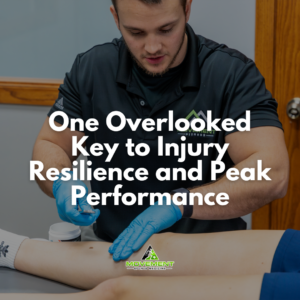Fuel to Thrive: Why Women 40+ Need to Eat More, Not Less
One of the most common mistakes I see women over 40 make is trying to eat like they did when they were 20. Low-calorie diets. Skipping meals. Living off coffee and protein bars. Hoping the scale will move if they can just “eat less and be good” for a few days. But here’s the truth: what worked in your 20s won’t work in your 40s. In fact, it’s probably working against you now.
Here’s why you need to eat more to live better…
When we talk about health, body composition, and metabolism at this stage of life, the goal isn’t to eat less—it’s to eat smarter. You need to fuel your body, not starve it. Especially if you want to feel strong, lose fat, and build a healthier body for the long haul.
Your basal metabolic rate (BMR) is the number of calories your body needs to stay alive. That’s it. It’s the energy required to breathe, circulate blood, digest food, and support organ function—if you laid in bed all day and didn’t move a muscle. For most women, that number is between 1,200 and 1,500 calories per day, depending on height, weight, and lean muscle mass. The problem is, too many women eat below that number, trying to drop weight fast. That might work for a little while, but eventually, your body fights back. Eating under your BMR tells your body: “I’m not safe. Slow down. Hold onto fat. Burn less.” That’s not the message we want to send.
If you want to lose body fat, you do need to be in a calorie deficit—but not a severe one. You need to eat enough to fuel your daily activity, keep your metabolism functioning, and support your muscles. That’s why we aim for a small, sustainable deficit above your BMR, not a crash diet below it.
Your metabolism has changed. Hormones shift. Muscle mass decreases if you’re not actively working to maintain it. That’s why what worked 20 years ago won’t work now—and might actually make things worse. You need to eat enough protein to maintain lean muscle, strength train consistently, fuel your workouts, sleep well, and stay patient. This is a longer game. Rapid weight loss is almost always followed by rapid rebound. That’s why we’re focused on longitudinal changes, not quick fixes.
Let’s just say it: the scale is stupid. It doesn’t tell you what you’re made of. It can’t tell the difference between fat and muscle, water retention or hormone shifts. You can lose inches, feel stronger, have more energy—and the number on the scale might stay the same or even go up. But here’s what matters more than weight: are you building or maintaining lean muscle? Are your clothes fitting differently? Do you feel stronger and more energized? Are your workouts improving? Are you recovering better? Fat loss and muscle gain often cancel each other out on the scale—but not in real life. Lean muscle improves your metabolism, protects your joints, supports your bones, and helps you age well. It’s the tissue that keeps you independent and strong into your 50s, 60s, and beyond.
We have to stop treating food like the enemy. Food is fuel. It’s what allows you to move, train, think clearly, and recover. Eating more whole foods, getting protein at every meal, and staying consistent is what creates real change. This isn’t about fitting into a dress in 3 weeks. It’s about building a body that allows you to live well for decades. You don’t need another diet. You need to eat enough, lift heavy things, get strong, and be consistent. The results will come—but they won’t come fast. They’ll come from fueling well, not from starving yourself.
And if you really want to track your progress the right way, stop obsessing over the scale. Start using real data. Get on the InBody every month. It will show you what’s actually changing—lean muscle tissue, body fat percentage, and water balance. That’s the truth about your body, not just a number that bounces up and down. You may weigh the same, but have more muscle, less fat, better posture, and more energy. That’s winning. So eat to fuel, train with purpose, and measure what matters. Your future self will thank you.



